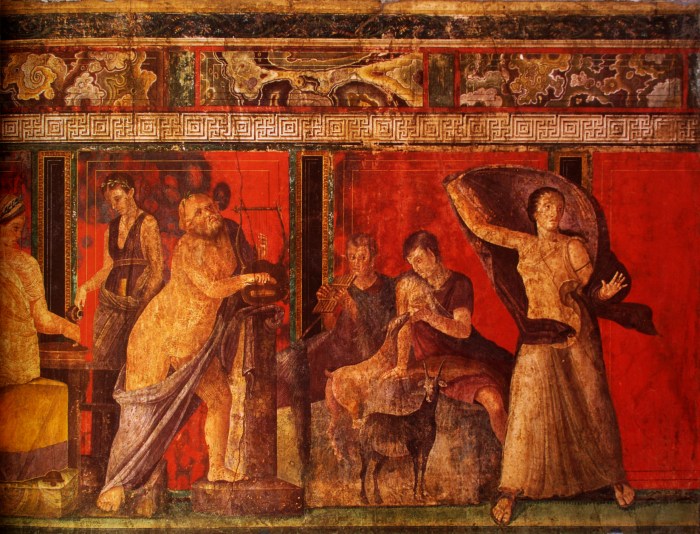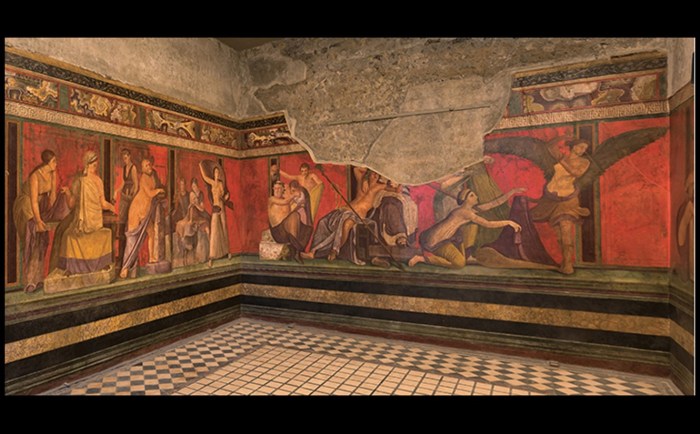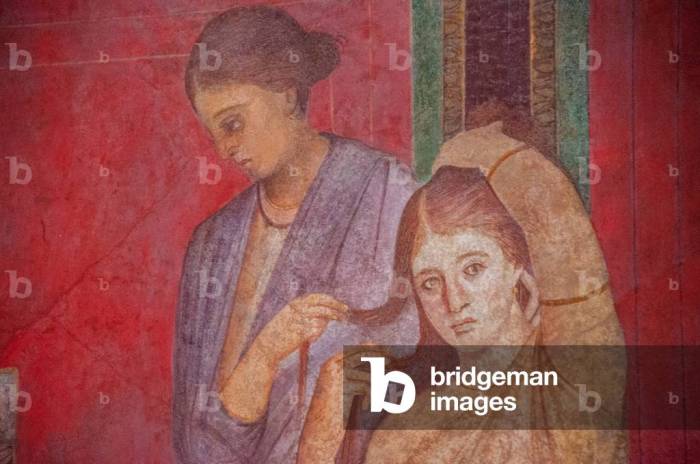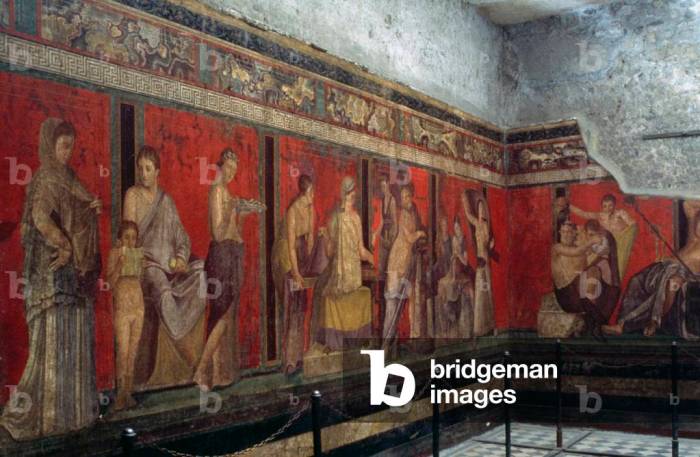The initiation rites of the Cult of Bacchus, shrouded in mystery and intrigue, have captivated the imaginations of historians and scholars for centuries. This enigmatic cult, dedicated to the Roman god of wine, celebrated its rituals with fervor and secrecy, leaving behind a legacy that continues to fascinate.
From the intoxicating allure of wine to the transformative power of initiation, this exploration delves into the beliefs, practices, and profound impact of the Cult of Bacchus on ancient Roman society and beyond.
Introduction to the Cult of Bacchus

The Cult of Bacchus, also known as the Bacchanalia, was a mystery religion that originated in Greece and spread throughout the Roman Empire. The cult worshipped Bacchus, the Roman god of wine, and its rituals were known for their secrecy, revelry, and alleged debauchery.
The Initiation Rites
Initiation into the Cult of Bacchus involved several stages:
- Purification:Initiates underwent a ritual purification involving bathing and fasting.
- Nocturnal Gathering:The main initiation ceremony took place at night in a secret location.
- Animal Sacrifice:A goat or pig was sacrificed, and its blood was used to anoint the initiates.
- Consumption of Wine:Initiates drank copious amounts of wine, which was believed to induce a state of ecstasy.
- Ecstatic Dance:Initiates engaged in wild and frenzied dancing, believed to connect them with the divine.
- Revelation of Mysteries:The initiates were revealed the secret teachings of the cult.
The Role of Wine in the Initiation Rites
Wine was central to the initiation rites of the Cult of Bacchus:
- Sacred Beverage:Wine was considered a sacred beverage, believed to have divine properties.
- Intoxication:The excessive consumption of wine was intended to induce a state of intoxication, facilitating communion with the god.
- Symbolic Blood:The wine was seen as a symbol of Bacchus’s blood, representing the sacrifice and renewal associated with the god.
The Afterlife Beliefs of the Cult of Bacchus
The Cult of Bacchus held specific beliefs regarding the afterlife:
- Elysian Fields:Initiates believed they would be rewarded in the afterlife with a paradise called the Elysian Fields.
- Rituals for Favorable Afterlife:Initiates performed specific rituals, including drinking wine and engaging in ecstatic dances, to ensure a favorable afterlife.
- Connection with Bacchus:The cult believed that through initiation and ritual participation, they could establish a connection with Bacchus and his divine realm.
The Legacy of the Cult of Bacchus, Initiation rites of the cult of bacchus
The Cult of Bacchus left a lasting legacy on Roman culture:
- Influence on Roman Religion:The cult’s beliefs and rituals influenced Roman religious practices and festivals.
- Artistic Depictions:The cult’s imagery and symbolism have been depicted in Roman art and literature.
- Reinterpretations Over Time:The cult’s initiation rites have been reinterpreted and adapted in various cultural and religious contexts throughout history.
- Modern Influences:Elements of the cult’s rituals and beliefs can be seen in contemporary artistic and cultural practices.
Questions and Answers: Initiation Rites Of The Cult Of Bacchus
What were the stages of initiation into the Cult of Bacchus?
Initiation typically involved three stages: purification, testing, and rebirth.
What role did wine play in the initiation rites?
Wine was central to the cult’s rituals, symbolizing both the transformative power of Bacchus and the joy of the afterlife.
What were the beliefs of the Cult of Bacchus regarding the afterlife?
The cult believed in a blissful afterlife for initiates, where they would join Bacchus in eternal revelry.


